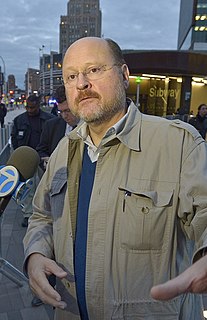A Quote by Jonathan Alter
Unless the digital divide is narrowed soon, the United States may be headed to the class warfare of a century ago, the last time the economy changed so fundamentally. It won't be pleasant.
Related Quotes
As the United States continues its slow but steady recovery from the depths of the financial crisis, nobody actually wants a massive austerity package to shock the economy back into recession, and so the odds have always been high that the game of budgetary chicken will stop short of disaster. Looming past the cliff, however, is a deep chasm that poses a much greater challenge -- the retooling of the country's economy, society, and government necessary for the United States to perform effectively in the twenty-first century.
When the Democrats are attacked for [inciting class warfare] they shrink back. They don't say what obviously should be said, "Yes, there is class warfare. There has always been class warfare in this country." The reason the Democrats shrink back is because the Democrats and the Republicans are on the same side of the class war. They have slightly different takes. The Democrats are part of the upper class that is more willing to make concessions to the lower class in order to maintain their power.
The basic thing that made Trump popular is that he blamed others for the problems that we have in the United States. We have a problem. Let's face it. The typical income, median income, of a full-time male worker - and the workers who have a full-time job are the lucky ones - is at the same level it was 42 years ago. At the bottom, real wages in the United States are at the same level they were 60 years ago.
The United States is a special case, and for me, very interesting. It's studied carefully and we know a lot about it. One of the most striking features of the elections is the class-based character of the vote. Now, class is not discussed or even measured in the United States. In fact, the word is almost obscene, except for the term "middle class." And you can't get exact class data; the census doesn't even give class data. But you can sort of see the significance of it just from income figures.
Margaret Thatcher was a 20th century visionary who understood the power of individual freedom versus the tyranny of government collectivism. She was a loyal supporter and friend of the United States and her terms as prime minister were marked as the beginning of the resurgence of the economy of the United Kingdom.

































